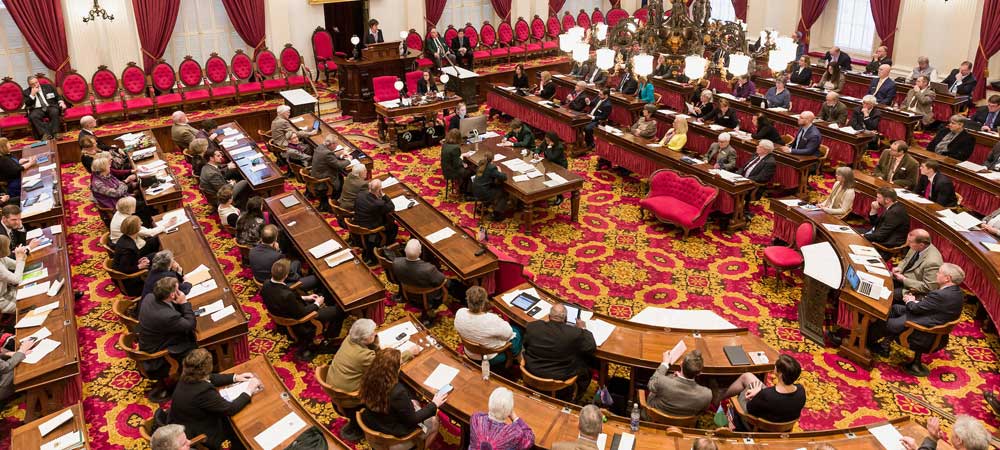- H127, a Vermont bill that would legalize digital-only wagering, now finds itself in the Senate for amendment hearings.
- While most amendments serve to clear up contested language, other provisions aim to create the tax code for wagering, which may signal that the bill is near completion.
- Vermont’s close proximity to other states where gambling is succeeding may have played a role in their move to legalize.
MONTPELIER, Vt. – House Bill 127 continues its historic movement throughout the Vermont legislature. It now sits in the Senate where it is being examined for possible amendments before likely heading to the floor for vote.
A deeper look into what these amendments entail may give some insight into the likelihood of the bill passing. With so many of its geographical neighbors already enjoying a growing betting market, Vermont will look to be next in line to join the legal sports betting frenzy that is taking the nation by storm.
What H127 is and its Proposed Amendments
H127, the House bill created by main sponsor Rep. Matt Birong seeks to legalize and regulate digital-only wagering. Last month, the bill was passed by the House and now finds itself in the Senate for deliberation, where it is receiving some amendments.
A couple other things that the bill accomplishes includes a fund for problem gambling that takes five percent of tax revenue and banning sportsbook operators from advertising in places where vulnerable populations, such as those under age 21, will be present in majority. Between two and six sportsbook operators would be able to purchase licenses based on a bidding system.
Most of the proposed amendments do not change much of the bill’s foundation, mainly serving to clarify uncertain language within the bill and then further adding a clause that would make any proceeds from wagers included in the individual’s adjusted gross income and thus subject to taxes. One amendment does however include an operator fee of $550,000 that would only be charged once during a three-year period, which alludes to potential multi-year operator deals.
The nature of these amendments gives off the impression that perhaps the bill is already passable by votes, meaning these amendments would be more of a formality to tie up any loose ends in the bill’s language and implementation. Vermont has various reasons to legalize quickly, especially because of their legislative session’s window and the prominence of gambling in neighboring states.
With their legislative session ending very soon on May 19, it seems that the Senate and House are looking to finish up the details and have the bill signed into law before recess. Another reason that would push the legislature to create legal Vermont sports betting is losing many potential tax dollars to neighboring states.
Every state surrounding Vermont has not only legalized sports betting, but has done so with great success and anyone that wanted to gamble in Vermont could simply drive across state lines and legally place bets. With valuable dollars leaving the state frequently, it just makes sense for Vermont to capitalize and keep bettors within the state where they can be taxed.
Vermont is the next in a long list of states that have weighed sports betting legalization. With the prospects of legalization looking better by the day, Vermont would be the second state to legalize this year after Kentucky. With many more states in the process of putting sports betting bills through their legislature, the U.S.’s betting market will likely continue its meteoric growth with time.
Advertising Disclosure
In order to provide you with the best independent sports betting news and content LegalSportsBetting.com may receive a commission from partners when you make a purchase through a link on our site.
News tags: H127 | Kentucky | Matt Birong | Vermont | Vermont House | Vermont Senate

Jeremias is a current Florida State University student majoring in Editing, Writing and Media as well as Media/Communication studies. Primarily focused on the NFL, NBA, and NHL, Jeremias has a passion for sports statistics research that helps bettors find the blind spots in sportsbooks.


 Bitcoin Sports Betting Sites
Bitcoin Sports Betting Sites Best Online Sports Betting
Best Online Sports Betting Famous Sports Bettors
Famous Sports Bettors States With Legal Sports Betting
States With Legal Sports Betting Sports Betting Events
Sports Betting Events




